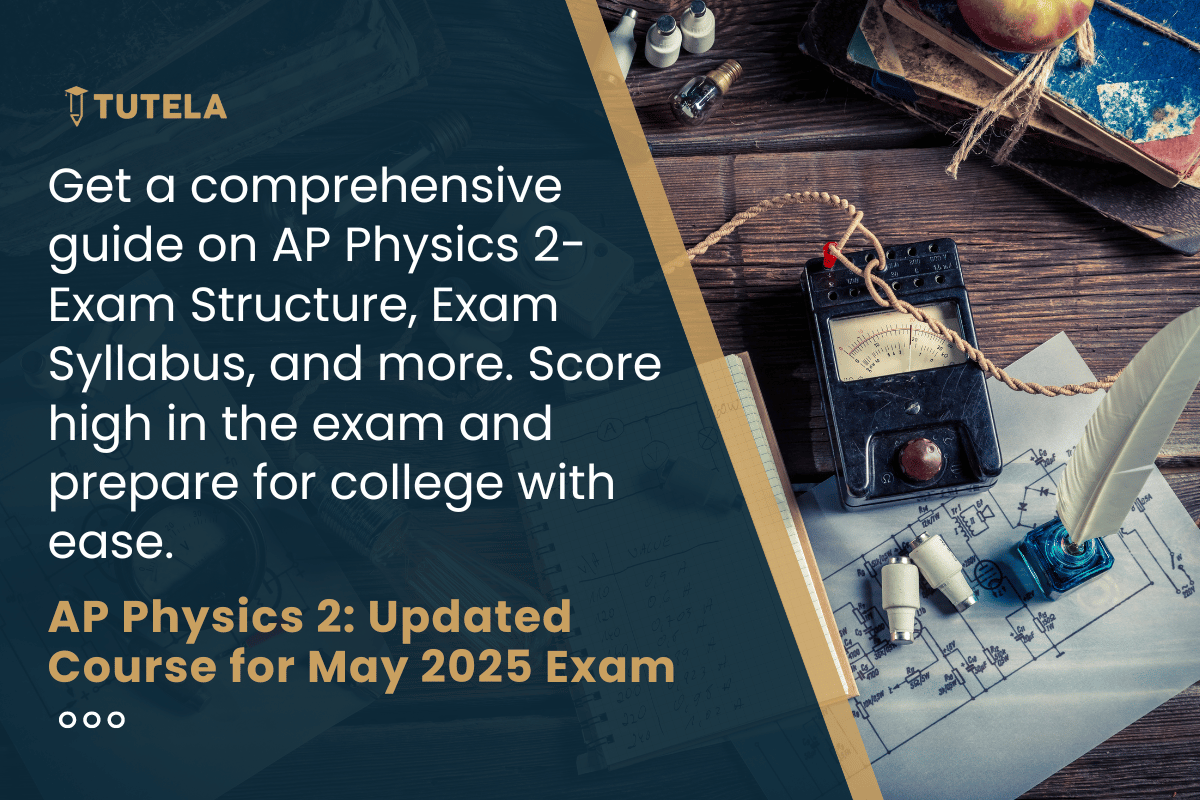
Welcome, Physics Enthusiasts, to an enthralling exploration of AP Physics 2! Whether you're preparing for the AP exam or delving into the wonders of electricity, magnetism, and fluid dynamics, get ready for an enlightening journey. The AP Physics 2 Exam for May 2025 has undergone some changes. We have incorporated these changes below. To view changes for AP Physics C Mechanics, click here, and for AP Physics C: Electricity and Magnetism, click here. The AP Physics 2 Exam is on 13th May 2025.
In this blog, we aim to be the go-to guide for students, breaking down the entire syllabus of AP Physics 2 in a concise and engaging manner. From advanced fluid mechanics to the mysteries of electric circuits, we'll navigate the essential principles of physics.
| Unit Name | Units Covered | Weightage in the Exam |
| Unit 1: Thermodynamics |
| 15-18% |
| Unit 2: Electric Force, Field, and Potential |
| 15-18% |
| Unit 3: Electric Circuits |
| 15-18% |
| Unit 4: Magnetism and Electromagnetism |
| 12-15% |
| Unit 5: Geometric Optics |
| 12-15% |
| Unit 6: Waves, Sound, and Physical Optics |
| 12-15% |
| Unit 7: Modern Physics |
| 12-15% |
The AP Physics 1 exam for May 2025 has undergone some changes. The updated structure is as follows:
Section I: Multiple-Choice Questions (MCQs)
Section II: Free-Response Questions (FRQs)
Types of Questions:
1. Physics and Astrophysics: AP Physics 2 serves as a continuation of the physics journey, providing essential principles for students pursuing majors in physics and astrophysics.
2. Electrical Engineering: The study of electricity, magnetism, and circuits aligns with the curriculum of electrical engineering majors, offering a comprehensive understanding of these principles.
3. Mechanical Engineering: Advanced topics such as fluid dynamics and thermodynamics contribute to the knowledge base required for mechanical engineering majors.
4. Environmental Science: Understanding fluid dynamics and thermodynamics is relevant to environmental science, where knowledge of these principles aids in analyzing environmental processes.
5. Materials Science: The course's coverage of electromagnetism and optics is valuable for students exploring materials science, where an understanding of these principles is crucial.
6. Biophysics: For those interested in the intersection of physics and biology, particularly in understanding electrical and optical phenomena in biological systems, AP Physics 2 provides relevant insights for biophysics majors.
7. Aerospace Engineering: Knowledge of fluid dynamics and thermodynamics is essential for students aiming for careers in aerospace engineering, where an understanding of these principles is fundamental.
8. Computer Engineering: The study of electric circuits and electromagnetism is directly applicable to computer engineering, contributing to success in hardware design and development.
9. Applied Physics: The course aligns with the curriculum of applied physics majors, providing a comprehensive understanding of advanced physics principles.
10. Renewable Energy Engineering: Understanding thermodynamics and fluid dynamics is crucial for students interested in the field of renewable energy engineering, where efficient energy conversion is a key focus.
TutelaPrep’s College Navigator allows students to search for colleges based on their preferred country and course. Not only that, it also provides valuable insights into each college’s specific admission requirements for those exams. Through College Navigator, you can even connect with alumni at your chosen colleges to get a firsthand feel for campus life and academics.
We hope this article helped you with the subject knowledge. Reach out to us by filling out our assistance form if you need any help with the preparations.